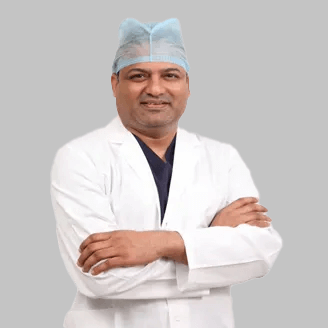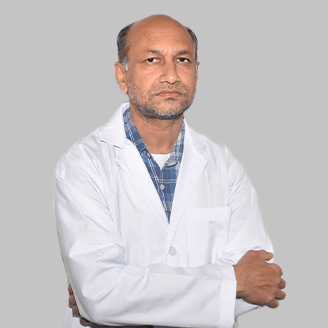-
Doctors
-
Specialities & Treatments
Centre of Excellence
Specialties
Treatments and Procedures
Hospitals & Directions HyderabadCARE Hospitals, Banjara Hills CARE Outpatient Centre, Banjara Hills CARE Hospitals, HITEC City CARE Hospitals, Nampally Gurunanak CARE Hospitals, Musheerabad CARE Hospitals Outpatient Centre, HITEC City CARE Hospitals, Malakpet
HyderabadCARE Hospitals, Banjara Hills CARE Outpatient Centre, Banjara Hills CARE Hospitals, HITEC City CARE Hospitals, Nampally Gurunanak CARE Hospitals, Musheerabad CARE Hospitals Outpatient Centre, HITEC City CARE Hospitals, Malakpet Raipur
Raipur
 Bhubaneswar
Bhubaneswar Visakhapatnam
Visakhapatnam
 Nagpur
Nagpur
 Indore
Indore
 Chh. Sambhajinagar
Chh. SambhajinagarClinics & Medical Centers
Book an AppointmentContact Us
Online Lab Reports
Book an Appointment
Consult Super-Specialist Doctors at CARE Hospitals

Intestine Diseases
Intestine Diseases
Intestine Treatment In Hyderabad, Large Intestine Infection Treatment in India
Intestine diseases include conditions associated with both the small intestine and large intestine.
Small intestine disease
The small intestine is an integral part of the digestive tract. It is also known as the small bowel. There is a long portion of the digestive system that connects the stomach to the large intestine.
Vitamins and minerals are absorbed by the small intestine as food is digested. Small intestine problems can affect not only one’s health but also one’s diet, which can affect the entire body.
There are several conditions and diseases that can affect the small intestine, including Crohn’s disease, celiac disease, small intestinal bacterial overgrowth (SIBO), and irritable bowel syndrome (IBS).
Conditions that Affect the Small Intestine
Disorders and conditions that can affect the small intestine include:
- Celiac disease: An autoimmune disorder triggered by gluten consumption, causing inflammation and damage to the small intestine lining.
- Crohn's disease: A type of inflammatory bowel disease (IBD) characterized by chronic inflammation that can affect any part of the digestive tract, including the small intestine.
- Small intestine bacterial overgrowth (SIBO): An excessive growth of bacteria in the small intestine, leading to digestive symptoms such as bloating, diarrhea, and malabsorption of nutrients.
- Intestinal ischemia: Reduced blood flow to the small intestine, which can result in tissue damage and necrosis (tissue death).
- Intestinal obstruction: Partial or complete blockage of the small intestine, often caused by adhesions, hernias, tumors, or strictures, leading to abdominal pain, bloating, and vomiting.
- Malabsorption syndromes: Conditions such as lactose intolerance, pancreatic insufficiency, and bile acid malabsorption can impair the small intestine's ability to absorb nutrients properly.
- Small intestine tumors: Both benign and malignant tumors can develop in the small intestine, including adenocarcinomas, gastrointestinal stromal tumors (GISTs), and lymphomas.
- Irritable bowel syndrome (IBS): A functional gastrointestinal disorder characterized by abdominal pain, bloating, and changes in bowel habits, which can affect the small intestine.
- Parasitic infections: Parasites such as Giardia lamblia and Cryptosporidium can infect the small intestine, leading to diarrhea, abdominal pain, and malabsorption.
- Small bowel syndrome: A condition characterized by malabsorption and nutritional deficiencies due to the surgical removal or dysfunction of a significant portion of the small intestine.
Diagnosis of small intestine disease
The following tests may be performed to detect problems in the small intestine:
-
Barium swallow and small bowel follow-through: The Oesophagus, stomach, and small intestine are viewed with X-rays after drinking a barium-based contrast solution.
-
Blood tests: These tests may not be used to diagnose a disease, but they can identify symptoms associated with intestine diseases like anaemia or vitamin deficiency.
-
Colonoscopy: A colonoscopy finds problems with the colon (large intestine) rather than the small intestine, but it might also rule out other digestive problems.
-
CT scan: This is an X-ray that records detailed images of internal organs in the abdomen.
-
MRI: This imaging test uses a powerful magnet to scan the abdomen and produce images.
-
An endoscope, a small tube with a light and a camera on the end, is inserted into the mouth and down the Oesophagus until it reaches the stomach and early part of the small intestine. Tests might involve removing a biopsy (a small piece of tissue or fluid).
-
Breath tests: A breath test may diagnose or rule out small intestine bacterial overgrowth.
-
Testing stool for an infection: To rule out problems like an infection, stool might be sent to a lab for testing, which may include a bacterial culture.
-
Ultrasound: Sound waves are used to examine organs and structures in the abdomen.
Treatment of small intestinal disease
Depending on what’s causing your small bowel condition, you will need a different treatment. It is possible to treat a mental health problem with lifestyle changes such as diet and nutrition, stress reduction, or working with a mental health professional.
-
Celiac disease is treated by avoiding gluten. Treatment for symptoms outside the digestive system may be available, but there are no medications currently available to treat the condition.
-
Medications and lifestyle changes are both parts of the treatment for Crohn’s disease. There may be times when surgery is needed, such as when the bowel becomes narrow.
-
Treatment for IBS may include lifestyle changes, dietary changes, and medication. IBS sufferers may also be able to control their symptoms by identifying what triggers their symptoms.
-
Treatment for SIBO may include antibiotics to inhibit the growth of bacteria. As well as addressing any underlying conditions, nutritional support may also be necessary.
-
Bowel blockages might be treated in the hospital with decompression, which is done by inserting a flexible tube through the nose and down into the stomach. In some cases, surgery to remove the blocked section of the small intestine might be needed.
Large Intestine Diseases
As the small intestine empties into the large intestine, also known as the colon or large bowel, begins just below the right waist and extends up the abdomen. In addition to digestion, the large intestine is responsible for absorbing water from indigestible food matter and for the expulsion of waste materials.
Diseases of the large intestine and their symptoms
A large intestine disease can cause various types of symptoms depending on which part of the large bowel is affected. As well as coming and going with flare-ups, these symptoms can range from mild to severe. The symptoms of the large intestine can also be accompanied by other symptoms, which vary according to the underlying disease, disorder, or condition.
Large intestine diseases are characterised by the following symptoms:
-
Abdominal swelling, distension or bloating
-
Bloody stool (blood may be red, black, or tarry in texture)
-
Constipation
-
Diarrhoea
-
Fatigue
-
Fever and chills
-
Gas
-
Inability to defecate or pass gas
-
Nausea with or without vomiting
A large intestine may also cause the following symptoms that can affect a patient’s overall health and well-being:
-
Anxiety
-
Loss of appetite
-
Malnutrition
-
Skin and hair conditions
-
Unexplained weight loss
-
Weakness (loss of strength)
Large intestine disease diagnosis
A complete medical history and physical examination are required in order to diagnose what type of large intestine disease a patient is experiencing. Depending on your condition, you may also need to undergo diagnostic tests to develop a treatment plan, which may include:
-
Blood tests
-
Breath tests with lactose. An easy, non-invasive way to assess absorption. Radiation is measured in the breath using a nutrient that contains radioactive material.
-
Colonoscopy: The large intestine is examined with the help of a thin, flexible tube. Using this test, you can find ulcers, polyps, tumours, and bleeding or inflammatory areas. A biopsy can be performed to collect tissue samples and remove abnormal growths. It may also be used to detect cancer of precancerous growths (polyps) in the colon or rectum.
-
Endoscopy in the capsule may provide a better view of the lower digestive tract than a traditional colonoscopy.
-
Sigmoidoscopy: A procedure used to look inside the rectum and the area of the large intestine closest to it.
-
Imaging tests. X-rays, computed tomography (CT) scans, MRIs, and PET scans
-
Ultrasound: Excellent for detecting large intestinal tumours.
Large intestine disease treatment
The physician may suggest a few simple steps to determine if your symptoms will subside, such as:
-
Avoid smoking
-
Avoid foods that trigger the symptoms
-
Exercise
-
Increase dietary fibre
-
Maintain a healthy weight
-
Medications (i.e., over-the-counter or prescription medications)
Why choose CARE Hospitals
Infections such as C. difficile are treated in CARE Hospitals by our colorectal surgeons and infectious disease specialists.
You may be advised to undergo surgery as an advanced treatment measure including:
-
Colon and rectal surgery
-
Polyp removal
-
Rectal prolapse
-
Sacral nerve implants/stimulation for accidental stool leakage
Our Doctors
-

Dr. C P Kothari
MBBS, MS, FICS, FIAGES, FMAS
Gastroenterology – Surgical
View More -

Dr. Surendra Kumar Khunte
MBBS, MD Medicine, DM (Gastroenterology)
Gastroenterology Medical
View More -

Dr. Ravindra Kale
MBBS, MD (Medicine), DM (Gastroenterology)
Gastroenterology Medical
View More -

Dr. Neeraj Jain
MBBS, MD, DNB, DM
Gastroenterology Medical
View More -

Dr. A R Vikram Sharma
MBBS, MS
General Surgery
View More -

Dr. Akash Chaudhary
MBBS, MD, DM
Gastroenterology Medical
View More -

Dr. Alok Rath
MBBS, MS, FNB (Minimal Access & Surgery)
Gastroenterology – Surgical, General Surgery
View More -

Dr. Anshuman Singh
MBBS, MD (Medicine), DM (Gastroenterology - IPGMER Kolkata)
Gastroenterology Medical
View More -

Dr. B Ravinder Reddy
MBBS, MS, FRCS (Edinburgh), FRCS (Glasgow)
Gastroenterology – Surgical, General Surgery
View More -

Dr. Bhageerath Raj D
MBBS, MD, DM (Gastro)
Gastroenterology Medical
View More -

Dr. Biswabasu Das
MBBS (Hons), MS (General Surgery), MCh (Surgical Gastroenterology) (AIIMS New Delhi), Fellow (HPB SURG) (MSKCC, NY, USA)
Gastroenterology – Surgical
View More -

Dr. Biswabasu Das
MBBS (Hons), MS (General Surgery), MCh (Surgical Gastroenterology) (AIIMS New Delhi), Fellow (HPB SURG) (MSKCC, NY, USA)
Gastroenterology – Surgical
View More -

Dr. D.V. Srinivas
MBBS, MD, DM
Gastroenterology Medical
View More -

Dr. Dillip Kumar Mohanty
MBBS, MD, DNB (Gastroenterology), Fellowship in Advance Endoscopy & ERCP
Gastroenterology Medical
View More -

Dr. G. Satyanarayana
MBBS, MD (Medicine), DM (Gastroenterology)
Gastroenterology Medical
View More -

Dr. Ghana Shyam Gangu
MBBS, DNB, DM (Gastroenterology)
Gastroenterology Medical
View More -

Dr. Hitesh Kumar Dubey
M.B.B.S, M.S (Gen. Surgery), MCH-SS (G.I and HPB Surgery)
Gastroenterology – Surgical
View More -

Dr. J Vinod Kumar
MBBS, MS, FAIS, FIAGES, FMAS
Gastroenterology – Surgical, General Surgery
View More -

Dr. Jatashankar Mohapatra
MBBS, MS (General Surgery)
Gastroenterology – Surgical, General Surgery
View More -

Dr. Jawwad Naqvi
MBBS, MS, FIAGES, FMAS, FIALS
Gastroenterology – Surgical, General Surgery
View More -

Dr. Karthikeya Raman Reddy
MBBS, MD (General Medicine)
Gastroenterology Medical
View More -

Dr. Karunakar Reddy
MBBS, MS (General Surgery), DNB (Surgical Gastroenterology)
Gastroenterology – Surgical
View More -

Dr. Lalit Nihal
MBBS, MD, DM
Gastroenterology Medical
View More -

Dr. M. Asha Subba Lakshmi
MBBS, MD (General Medicine), DM (Gastroenterology)
Gastroenterology Medical
View More -

Dr. Mustafa Hussain Razvi
MBBS, MS (General Surgery), DNB (Surgical Gastroenterology)
Gastroenterology – Surgical, General Surgery
View More -

Dr. P. P. Sharma
MBBS, MS (Surgery), FAIS, FICS, FMAS, FIAGES
Gastroenterology – Surgical, General Surgery
View More -

Dr. Pardhasaradhi P
MBBS, MS General Surgery, DrNB Surgical Gastroenterology
Gastroenterology – Surgical, Liver Transplantation and Hepatobiliary Surgery
View More -

Dr. Parvez Ansari
MBBS, DNB (General Surgery)
General Surgery
View More -

Dr. Ramsagar Vidya Sagar
MD, DM
Gastroenterology Medical
View More -

Dr. Rohan Kamalakar Umalkar
MBBS, MS (General Surgery)
General Surgery
View More -

Dr. S Jagadeeswar
MBBS, MD (General Medicine), DM (Medical Gastroenterology)
Gastroenterology Medical
View More -

Dr. Sandeep Dave
MBBS, MS, FIAGES, FAMS
Gastroenterology – Surgical, General Surgery
View More -

Dr. Sandeep Pandey
MD, DM
Gastroenterology Medical
View More -

Dr. Santosh Kumar Behera
MBBS, MS (General Surgery)
Gastroenterology – Surgical, General Surgery
View More -

Dr. Saurabh Lanjekar
MBBS, MD, DNB (Gastroenterology)
Gastroenterology Medical
View More -

Dr. Siddarth Tamaskar
MBBS, MS, FMAS, FIAGES
Gastroenterology – Surgical, General Surgery
View More -

Dr. Swathi G
MD (General Medicine), DM (Gastroenterology)
Gastroenterology Medical
View More -

Dr. Tapas Mishra
MS, FIAGES, FMAS, DIPMAS (Bariatric)
General Surgery, Laparoscopic and Bariatric Surgery
View More -

Dr. Varun Addagarla
MBBS, DNB (Medicine), DM (Gastroenterology)
Gastroenterology Medical
View More -

Dr. Venugopal Pareek
MBBS, MS, DNB, FMAS, FIAGES, FAIS
Gastroenterology – Surgical, Laparoscopic and Bariatric Surgery
View More -

Dr. Vinit Kahalekar
MBBS
Gastroenterology Medical
View More
Frequently Asked Questions
Still Have a Question?

